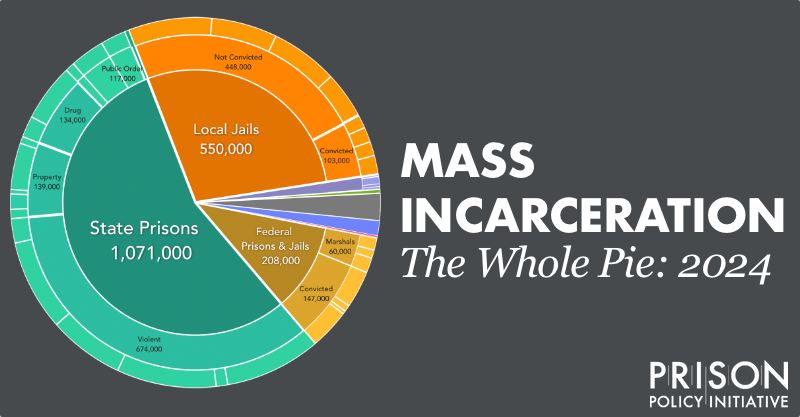At Sustainable Action Now, we are committed to examining systems that impact human rights, justice, and social equity. One area where scrutiny is especially critical is the private prison system in the United States. Recent insights from the Prison Policy Initiative (PPI) highlight a year of intensive research, advocacy, and data-driven action aimed at addressing the complex challenges of incarceration and the privatization of correctional facilities.
📊 Key Achievements and Research Highlights
In their 2025 annual report, PPI outlined major milestones in research, public engagement, and policy advocacy:
- Expanding data visualizations: PPI continues to make complex incarceration data accessible through interactive charts, maps, and dashboards, helping the public and policymakers understand trends in prison populations, racial disparities, and private facility usage.
- Investigating private prisons: Their research increasingly focuses on the impact of privatization on inmate treatment, recidivism, and costs to taxpayers, shedding light on how profit motives can influence incarceration policies.
- Policy impact: PPI has worked with lawmakers and advocacy groups to translate research into evidence-based policy recommendations, promoting alternatives to mass incarceration and reducing dependence on for-profit facilities.
- Public education and awareness: Through blog posts, newsletters, and community engagement, PPI has helped the public grasp the broader societal consequences of the U.S. prison system, from systemic inequalities to the human cost of incarceration.
These highlights showcase PPI’s continued dedication to grounded research and actionable solutions, demonstrating that understanding the data is essential to reform.
⚖️ The Broader Context: Private Prisons and Social Justice
Private prisons remain a contentious element of the U.S. criminal justice system. Key issues include:
- Profit incentives vs. rehabilitation: Facilities operated for profit may prioritize cost-cutting over programs that support rehabilitation, mental health, and reintegration.
- Racial and economic disparities: Communities of color and economically disadvantaged individuals are disproportionately affected by incarceration, particularly in privatized facilities.
- Lack of transparency: Many private prisons operate with minimal public oversight, limiting accountability and making reform efforts more challenging.
PPI’s work helps illuminate these concerns, providing data-driven evidence that supports calls for reform, transparency, and alternatives to profit-driven incarceration.
🌱 Advocacy and Action
At Sustainable Action Now, we emphasize that awareness is the first step toward meaningful change. Key ways to engage with these issues include:
- Explore the data: Understand how private prisons operate, who is affected, and the fiscal implications. PPI’s tools make complex information accessible and actionable.
- Support reform efforts: Advocate for legislation and policies that prioritize rehabilitation over profit, reduce mass incarceration, and ensure fair treatment for all individuals.
- Educate communities: Share knowledge and engage in local discussions about the human and societal costs of privatized incarceration.
For ongoing research, resources, and updates on private prisons and the broader criminal justice system, visit Sustainable Action Now’s Private Prisons category.
💡 Looking Ahead
The Prison Policy Initiative’s 2025 report demonstrates that data, transparency, and advocacy are powerful tools in the fight for a more just and equitable criminal justice system. By combining research with public engagement, PPI continues to challenge the status quo, shed light on systemic injustices, and provide actionable insights for policymakers and citizens alike.
As the U.S. grapples with the consequences of mass incarceration and the growth of for-profit facilities, initiatives like PPI’s are essential. Their work reminds us that informed action and public awareness are critical components of a sustainable, humane justice system.


